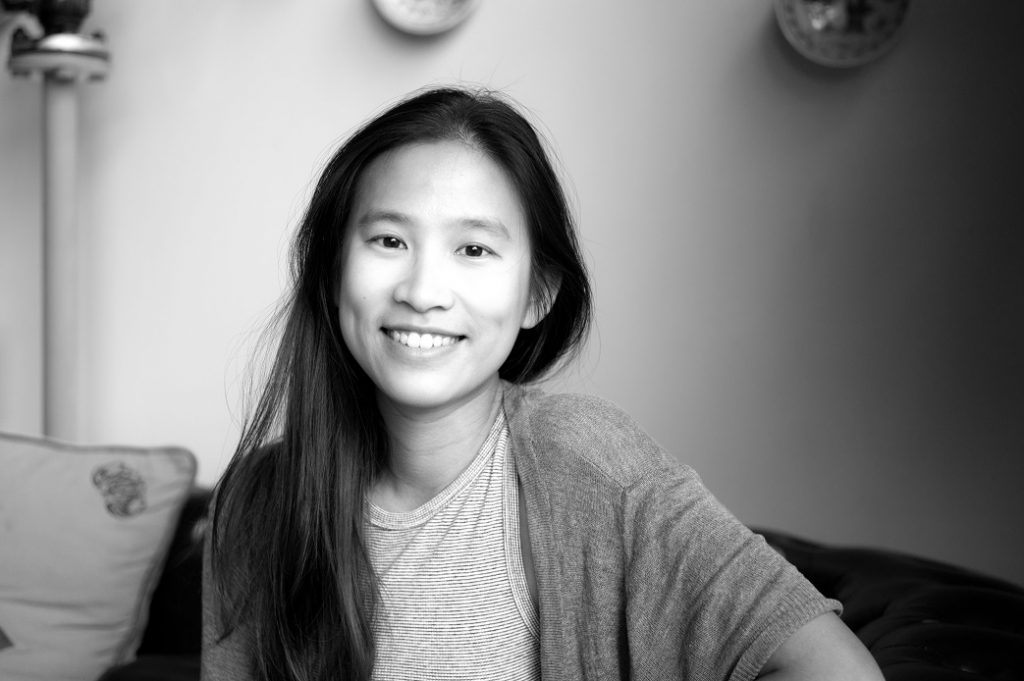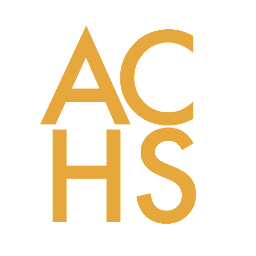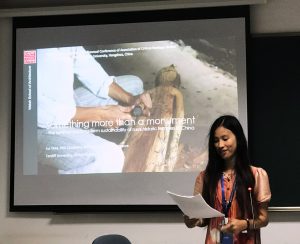Does everyone have a say in heritage? – Observations from the 2018 Association of Critical Heritage Studies Biennale Conference
30 October 2018 By Lui Tam, Welsh School of Architecture
By Lui Tam, Welsh School of Architecture
It is becoming evident that heritage is being studied by scholars from almost the entire spectrum of academic disciplines. Moreover, not only is heritage discussed among professionals but it also increasingly appears in everyday discussions. Critical Heritage Studies (CHS) is a research approach formed in such a context which strives to break the boundaries between ‘mainstream’ (namely history, archaeology, architecture, art history etc.) and ‘periphery’ disciplines, across state and cultural boundaries, as well as between ‘experts’ and ‘lay people’ regarding heritage studies and practices. I participated in the fourth biennale conference of the Association of Critical Heritage Studies (ACHS) in Hangzhou, China in September 2018, whose theme was ‘Heritage Across Borders’. The conference has attracted hundreds of international researchers and practitioners with disciplinary backgrounds ranging from arts and humanities, social sciences, to physical sciences and engineering, addressing issues of various types of heritage across the globe.
Between theory and practice
Among the delegates of the conference, there are prolific academics who contribute significantly to the theoretical development of the field and experienced practitioners. But in many cases, ‘heritage professionals’ are a bit of both. During the presentations and off-session discussions, the challenge of linking theory with practice became obvious. One incident may help demonstrate this challenge. There was one presentation about nationalism in the conservation and development of the Grand Canal, a World Heritage site in China. The researcher used the theory of ‘Authorised Heritage Discourse’ (AHD) (Smith, 2006) to examine the actions based on this discourse and their impact on the local communities and the development of the urban landscape around the site. In the Q&A session, one local site manager from the management unit of the Grand Canal asked the presenter whether she, as a
n academic from an internationally renowned university closely studying the site, could provide some advice for them to “better conserve the Grand Canal”. It was an expected question from a site manager who needs to make day-to-day decisions about the site, yet the researcher expressed that she could not provide specific advice on that. In fact, this answer is also expected as the aim of the research was perhaps not to answer the question of ‘how to conserve the Grand Canal better’, but to question the legitimacy of the interventions and their impact critically. In this sense, the work of this site manager is part of her research subject. While both the answer and the question seem reasonable, the apparent misconception between what the site manager thinks academic research could provide and what the researcher intends to do makes me question whether/how the outcome of academic research can be reflected in the actions on site: are we indeed lacking some kind of ‘translation’ between theory and practice?
Equality and Diversity
Another interesting observation was made during the general assembly session of the ACHS. One of the delegates raised the issue that all the six keynote speakers are male, two of which are Chinese, while the rest are all from the US and the UK. In fact, the lack of gender equality and diversity representation was among the most discussed issues during breaks. Besides the keynote speakers, the significantly high registration fee has also prevented the participation of many delegates from less developed countries. Ironically, one of the aspirations of ACHS is to promote a more inclusive approach to heritage studies and the inclusion of marginalised groups in practices and decision-making processes. My observation is a clear reminder that equality and diversity cannot be achieved by only voicing the issue in academic research, but they require rigorous implementation in our daily actions.

Breaking the individual and disciplinary boundaries
One of the first challenges that I encountered when I started my PhD research, is finding out the most appropriate methodology for it. The field of heritage seems to touch on every discipline yet it does not seem to sit squarely in any of them. This has been the challenge for many scholars in the field as well. There is no established set of methodology specifically dedicated to the field but rather, most of the heritage studies draw on theoretical foundations in various disciplines. On the other hand, as individuals, our professional knowledge, education, cultural and social backgrounds, all contribute to our inevitably limited ability. It is, however, possible to achieve that with collective effort. The multi-disciplinary nature of the conference confronted us with the challenge to overcome such individual limits, as we are forced to keep an open mind about ‘what we have known’ and ‘what we might find out’, even on our most familiar topics. Most sessions in the conference include a wide variety of topics. However, in-depth exchanges do not necessarily happen within the short time frame of the sessions. It shows that perhaps gathering a diverse group of researchers in a massive conference is merely the starting point of cross-boundary conversations and cooperation.
Found out more about Lui’s research on the Welsh School of Architecture website and ResearchGate.
- February 2025
- September 2024
- June 2024
- March 2024
- February 2024
- November 2023
- September 2023
- June 2023
- May 2023
- January 2023
- December 2022
- November 2022
- October 2022
- September 2022
- July 2022
- May 2022
- April 2022
- January 2022
- December 2021
- November 2021
- August 2021
- July 2021
- June 2021
- February 2021
- January 2021
- November 2020
- October 2020
- September 2020
- August 2020
- July 2020
- June 2020
- April 2020
- March 2020
- February 2020
- January 2020
- December 2019
- November 2019
- October 2019
- September 2019
- August 2019
- July 2019
- June 2019
- May 2019
- April 2019
- March 2019
- February 2019
- January 2019
- December 2018
- November 2018
- October 2018
- September 2018
- August 2018
- July 2018
- June 2018
- May 2018
- April 2018
- March 2018
- February 2018
- Biosciences
- Careers
- Conferences
- Development
- Doctoral Academy Champions
- Doctoral Academy team
- Events
- Facilities
- Funding
- Humanities
- Internships
- Introduction
- Mental Health
- PGR Journeys
- Politics
- Public Engagement
- Research
- Sciences
- Social Sciences
- Staff
- STEM
- Success Stories
- Top tips
- Training
- Uncategorized
- Wellbeing
- Working from home
